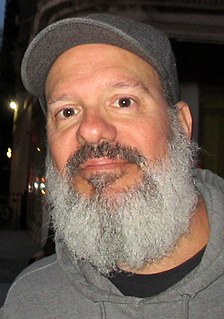A Quote by Elif Safak
I write my novels in English first; then they are translated into Turkish by professional translators. Then I take their translation and rewrite. So basically, I write the same novel twice.
Quote Topics
Related Quotes
Back when the Bible was written, then edited, then rewritten, then rewritten, then re-edited, then translated from dead languages, then re-translated, then edited, then rewritten, then given to kings for them to take their favorite parts, then rewritten, then re-rewritten, then translated again, then given to the pope for him to approve, then rewritten, then edited again, the re-re-re-re-rewritten again...all based on stories that were told orally 30 to 90 years AFTER they happened.. to people who didnt know how to write... so...
I tend to write things seven times before I show them to my editor. I write them seven times, then I take them on tour, read them like a dozen times on tour, then go back to the room and rewrite, read and rewrite... I would never show him a first draft, because then he's really going to be sick of it by the twelfth draft.
There was - there still is - a big shortage of good Chinese-English literary translators. So for two years in London, I was stuck waiting, not writing, with several Chinese books I couldn't get translated. That's when I decided to write in English, since I had been living here and had decided to reconstruct my life here. Even if I wrote in broken English, it was better than getting bored and weary and bitter on the long queue of authors waiting to be translated by a stranger.
I'm a morning person because I learned to write my novels while still practicing law. I would get to the office at 6:30 a.m. and write until other people arrived, around 9. Now I still do that. I start at 6:30 or 7, and I'll write until 11, then take an hour off, then work until about 2 p.m. By then my brain has had enough.
Some stories I write in Swedish, some in English. Short stories I've almost exclusively written in English lately, mostly because there's such a small market for them in Sweden and it doesn't really pay either. So, the translation goes both ways. What also factors in is that I have a different voice in English, which means that a straight translation wouldn't be the same as if I'd written it in English originally.
Usually I will hear a sample, think of a theme and then it will take me a couple of days to write down some lyrics. Then I will decide that I hate those lyrics and rewrite. Then I will change all the music around. Then I will rewrite all the lyrics again. I am a bit of a perfectionist although you would never know it because all my songs are like chopped up and @#$%& up, but you see that's on purpose.
When my works are being translated, I always get this question from my translators: Up or down? Which means, should it sound biblical and highbrow, or should we take it all down to sound colloquial? In Hebrew, it's both all the time. People in Israel would write in a high register, they wouldn't write colloquial speech. I do a special take on colloquial speech.






































